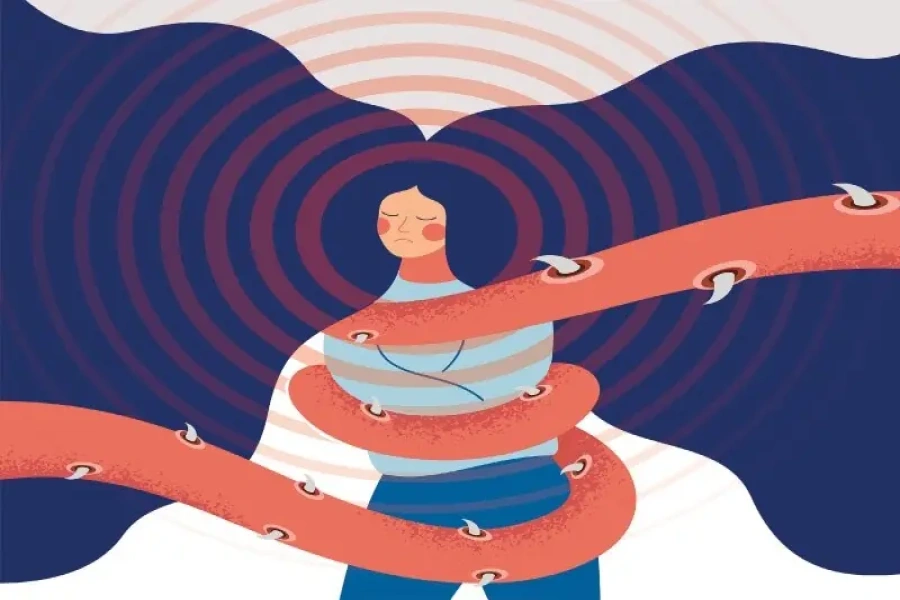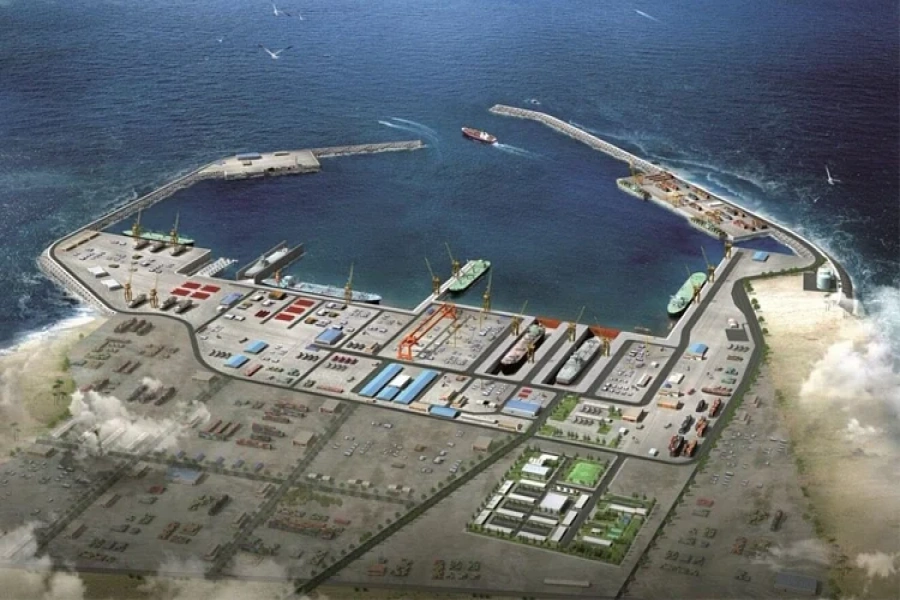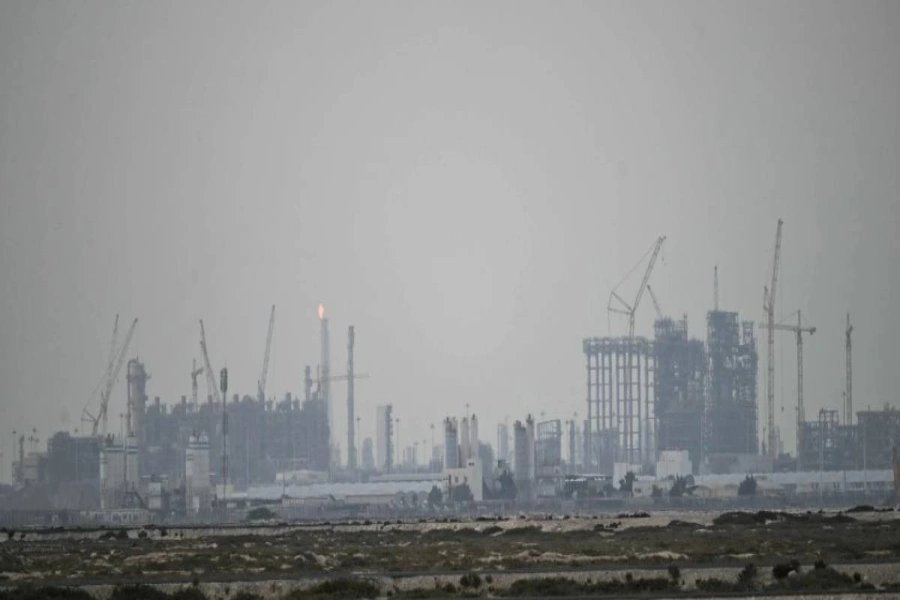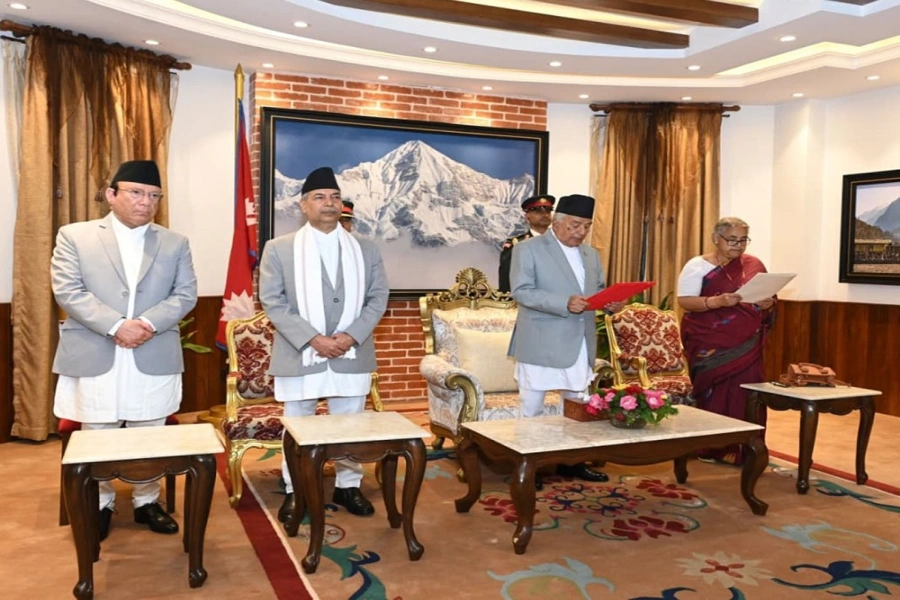The President of Bangladesh appointed Prof. Muhammad Yunus as a chief advisor of the interim Government of Bangladesh. During the swearing-in ceremony, he said, "I will uphold, support and protect the constitution," adding that he would perform his duties "sincerely". A 16-member advisor has been appointed in his cabinet including two student leaders and some economists.
Previously, after strong protests of the students and above four hundred deaths in Bangladesh, Prime Minister Sheikh Hasina resigned and fled away from the country. Thereafter, a meeting between President Mohammed Shahabuddin, military leaders, and student leaders decided to appoint Nobel Laureate Muhammad Yunus, 84, as a chief adviser of the interim government (caretaker government) of Bangladesh. Earlier, the student leaders demanded to name Yunus as the country’s transitional leader.
In 1983, Prof Yunus started Grameen Bank, which offers small, long-term loans to help poor people start their own small businesses. The concept has since taken off around the world. In 2006, Prof Yunus and the bank were awarded the Nobel Peace Prize. He is known internationally as the "banker to the poor". During the reign of Hasina, many cases on different charges were filed against him in courts. However, recently a court in Bangladesh overturned his conviction in a labor case in which he was handed a six-month jail sentence in January. Yunus had called his prosecution political, part of a campaign by Hasina to quash dissent.
Last month, thousands of people protested peacefully in Bangladesh’s capital, demanding justice for the people killed during the protests. The protesters chanted anti-government slogans and demanded the resignation of the prime minister as the wave of protest widened beyond students to include people from many walks of life.
In Bangladesh, the students, frustrated by shortages of good jobs, have been demanding an end to a quota that reserved 30% of government jobs for relatives of veterans who fought in Bangladesh’s war of independence in 1971. The government previously halted it in 2018 following mass student protests, but in June, Bangladesh’s High Court reinstated the quotas and set off a new round of protests.
Ruling on an appeal, the Supreme Court ordered that the veterans’ quota be cut to 5%, with 93% of jobs to be allocated on merit. The remaining 2% will be set aside for members of ethnic minorities and transgender and disabled people. Even after the Supreme Court cut the veterans’ quota to 5% on July 21, protests have continued to spread amid outrage over the violence. As protesters stormed the prime minister's official residence, Ms Hasina fled to neighboring India, ending nearly 15 years of rule.
Why are Bangladesh elections repeatedly in controversy?

Since 2014, Awami League Party in Bangladesh has been ruling the nation without opposition in the Parliament. When there are no oppositions in the Parliament, it is natural for the ruling party to be more autocratic and it runs the nation with its one sided decisions. In such circumstances, there could be no parameters to judge whether the government is making right or wrong decisions.
Germany’s Bertelsmann Foundation published its “Transformation Index 2018 (BTI),” and 58 out of 129 developing nations have been rated as autocracies. Bangladesh, Lebanon, Mozambique, Nicaragua, and Uganda are considered by Bertelsmann to be “new” autocracies.
Both the Awami League and BNP have a strong legacy with the democracy and development of Bangladesh. However, after strong differences and conflicts between them, the country has been suffering badly for a long time. Bangladesh Awami League party under the leadership of Sheikh Mujibur Rahman, the founding father of Bangladesh, led the struggle for independence, first through massive populist and civil disobedience movements, such as the Six Point Movement and 1971 Non-Cooperation Movement, and then during the Bangladesh Liberation War.
After the emergence of independent Bangladesh, the Awami League won the first general elections in 1973 but was overthrown in 1975 after the assassination of Sheikh Mujibur Rahman. Subsequent military regimes forced the party onto the political sidelines, and many of its senior leaders and activists were executed and jailed. After the restoration of democracy
In 1990, the Awami League emerged as one of the principal players of Bangladeshi politics. Bangladesh Nationalist Party (BNP) was founded on 1 September 1978 by former Bangladesh President Ziaur Rahman after the Presidential election of 1978, intending to uniting the people with a nationalist ideology of the country. Since then, the BNP won the second, fifth, sixth and eighth national elections and two Presidential elections in 1978 and 1981. The party also holds the record of being the most significant opposition in the history of parliamentary elections.
In Bangladesh, after boycotting the 2014 general election, the main opposition Bangladesh Nationalist Party (BNP) is absent in the parliament. The primary reason given by the BNP for not contesting the 2014, 2018 and 2024 elections was the abrogation by the Awami League-led government in 2011 of a constitutional provision enacted in 1998 that allowed for a caretaker government to take the reins of the state in the run-up to the elections. The caretaker government was meant to ensure free and fair elections, but this provision of the constitution was scrapped by the two-thirds majority government of the Awami League. In the name of the two-thirds majority, the scrapping of the constitution provision of caretaker government by Awami League was the primary cause of an election boycott by the BNP, which has been one of the major causes of political instability in Bangladesh.
The voice for reintroduction of the provision of the caretaker government in the constitution would certainly be raised again in the parliament, among political parties and the general public as well in Bangladesh. Many countries are administered by a caretaker government during election periods, such as Australia, Canada, the Netherlands, Malaysia, Pakistan and New Zealand.
The caretaker government of Bangladesh was a form of government in which Bangladesh used to be ruled by a selected government for an interim period during the transition from one elected government to another between 1996 and 2008. The outgoing elected government used to hand over its power to the non elected nonpartisan caretaker government.
Top members of the caretaker government in Bangladesh did not represent any political party; nor were they allowed to contest the elections. The main objective of the caretaker government was to create a level playing field environment in which an election could be held in a free and fair manner without any political influence by the outgoing government.
It was not empowered to take any policy decisions unless it was necessary. The head of the caretaker government was called the Chief Adviser (in place of the Prime Minister) and was selected by the President. The Chief Adviser selected the other advisers. The top positions of the administration were generally distributed among the advisers. The Chief Adviser and the other advisers were committed for their activities to the President of Bangladesh. In 2011 the Bangladesh Awami League-led government abolished the caretaker government through passage of the 15th amendment of the constitution with its majority in Parliament. Thereafter, political instability started in Bangladesh, despite the economy performing well.







































